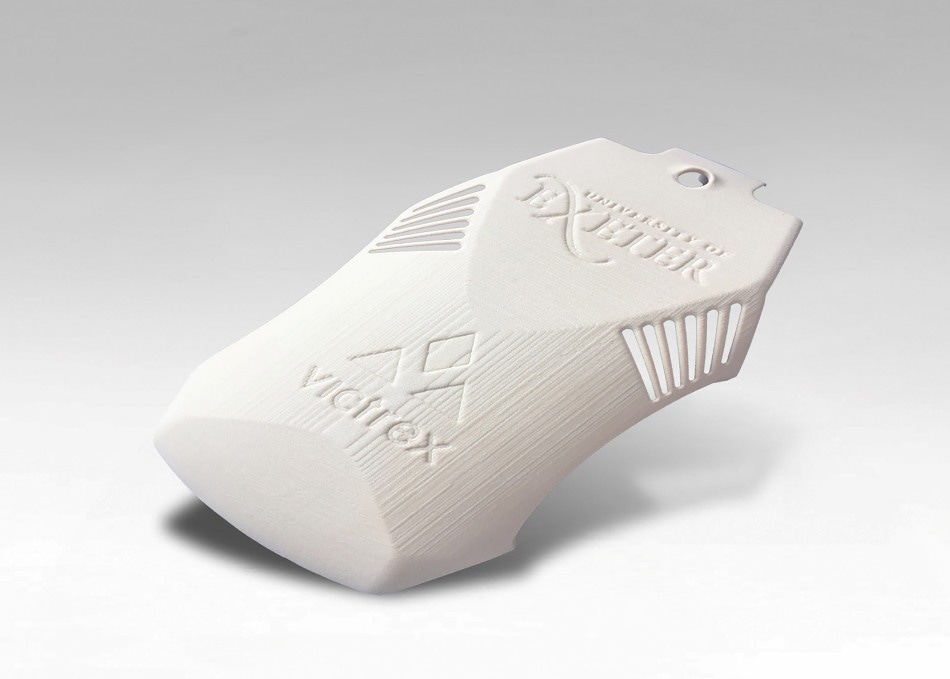Taking on the challenge to develop a broader platform for new and existing additive manufacturing (AM) technologies, the University of Exeter (UK) and Victrex, a world leader in high-performance polyaryletherketone (PAEK) polymer solutions, have commenced work in a strategic partnership. The goal is to introduce next-generation PAEK polymers and composites while improving the performance of the underlying AM processes. This collaboration is driven by Victrex R&D and the University´s Center for Additive Layer Manufacturing (CALM), a leading center of excellence. The new alliance will focus on multiple AM technologies.
 The strategic partnership of Victrex and the University of Exeter Center for Additive Layer Manufacturing introduces the next-generation PAEK polymers and composites solutions (© University of Exeter)
The strategic partnership of Victrex and the University of Exeter Center for Additive Layer Manufacturing introduces the next-generation PAEK polymers and composites solutions (© University of Exeter)
Additive manufacturing is a key productivity tool of the future, which grew at ~21% last year.1 The materials and technology to support AM continue to emerge, including the first PAEK polymers designed, developed and optimized specifically for AM. “We are excited to start this partnership and continue our R&D work on development of high performance materials and AM processes for today’s and future needs and applications. The new PAEK polymer based materials will give designers and developers the opportunity to use the best performing polymers within AM processes and help make this dream a reality, transforming AM into a high-performance production tool,” comments Professor Oana Ghita, the lead of CALM at the University of Exeter.
Victrex and CALM started to work together in a consortium2 focusing on the development of VICTREX™ PAEK polymers for various 3D printing processes. After having achieved major improvements, Victrex recently announced newly developed advanced PAEK products designed for AM: A high strength material for laser sintering, a filament with better Z-strength than existing PAEK materials and better printability for filament fusion.
Improved technologies for additive manufacturing of VICTREX PAEK can open up a range of possibilities for design engineers. Potential benefits of using PAEK polymer for AM could include:
- Greater design freedom for engineers looking to deploy AM in high-performance applications in a variety of industries.
- Higher-performance AM solutions, enabling the production of highly complex, highly customized, and highly specialized PAEK components.
- Digital design and fabrication of PAEK parts for rapid prototyping and speed to market.
- Improved economics through elimination of machining waste, improved refresh rates in powder bed fusion, and improved material utilization in filament fusion.
- Patient customized implants and improved outcomes through new features and better fit.
Aerospace and Medical Industry to Benefit
"Victrex is keen to help overcome barriers to adoption and realize the full potential of PAEK/PEEK-based parts produced using AM technology," explains Ian Smith, Marketing Director at Victrex. "In order to open up the AM supply chain, we need to continue to work together to develop an eco-system that can address unmet industry needs and accelerate the adoption of PAEK/PEEK for AM technologies. This cooperation with the University of Exeter is one part of Victrex´s efforts to construct that eco-system."
The company expects two industries to benefit in particular during the initial adoption phase. In the aerospace sector, the use of PAEK/PEEK in AM has the potential to enable new designs and the consolidation of parts within a single design. At the same time, it will allow the production of parts that would be difficult to machine. In medical, AM in conjunction with PAEK will allow the manufacture of medical devices to make patient specific implants. The prospect of broad-based industry-wide adoption awaits as the eco-system develops and improved solutions become available.
CALM - A Leading Center of Excellence in Polymeric Additive Layer Manufacturing
CALM is specializing in the use of high-temperature and high-performance polymers and composite materials for additive manufacturing. The center offers independent research and technical support, working with both academia and industry worldwide, to develop the next generation of AM materials for engineering. As the leading center of excellence in the high temperature AM sector, CALM is conducting pioneering research on additive manufacturing technology, examining how it can enable and speed-up the widespread adoption and use of this technology in industrial production.